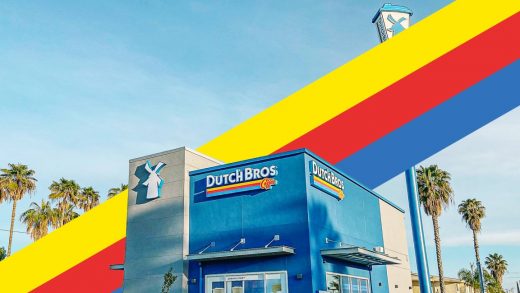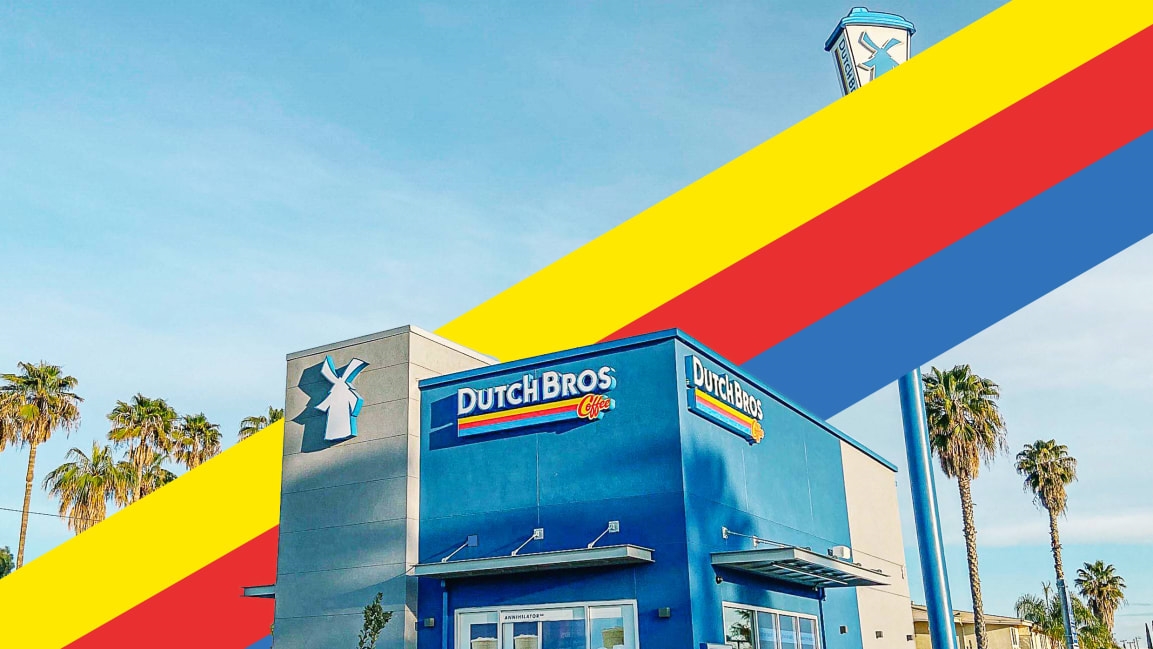Starbucks rival rising: Dutch Bros stock price gets a jolt on the Nasdaq after IPO
Dutch Bros is drinking in a hot stock market debut.
The Oregon-based coffee chain rang its IPO bell on the New York Stock Exchange this Wednesday. The company—which was founded three decades ago by a couple of dairy farmers with a pushcart, and whose menu includes beverages like chocolate macadamia nut espresso and nitro infused cold brew—is now trading under the ticker “BROS.”
Despite its humble origins, Dutch Bros has grown into a hearty enterprise on the West Coast. It currently boasts more than 480 locations in 11 states, including Idaho, Colorado, and Texas, and says it aspires to eventually rival global coffee giant Starbucks. It was off to a promising start on Tuesday with a better-than-expected IPO pricing at $23 per share—several dollars above its previously forecast range.
On Wednesday, its stock surged 70% after opening. Shares are hovering around $39 as of midday.
The pricing values Dutch Bros at a whopping $3.8 billion, instantly making it Oregon’s seventh-largest company. It’s also heading up the state’s biggest stock-market debut in history, beating even that of Oregon’s number-one sports goliath Nike, which debuted back in 1980 at $22 per share. Of course, that’s more a function of vast fiscal inflation over the last half century than of the companies’ relative worth—but nevertheless, it communicates great expectations for Dutch Bros on Wall Street.
As the story goes, Dutch Bros was born as a pushcart by the railroad tracks in Grants Pass, Oregon, a historic lumbering town. It was started by two brothers—the surviving one is now a billionaire—who largely succeeded in crafting a niche, but loyal, customer base. Much like western New York’s beloved Wegman’s, Dutch Bros enjoys an almost cult-like following, with fans calling themselves the “Dutch Mafia” and practicing “Dutch Luv.” The chain’s baristas are dubbed “broistas.”
Characteristically, Dutch Bros’s IPO prospectus lists employee satisfaction as a major focus: The chain has an annual turnover rate of 40%, compared to the industry average of more than 100%, according to a Bloomberg analyst, who noted that retaining employees “helps a lot” amid today’s tough labor market. The company brought in more than $400 million in sales during the one-year period ending June 30, which crunched down to a net income of $6.3 million. In 2020, it posted a revenue of $327 million and net income of $5.7 million.
It has posted 14 years of positive same-shop sales, despite 2008’s Great Recession and the COVID-19 pandemic.
(48)



